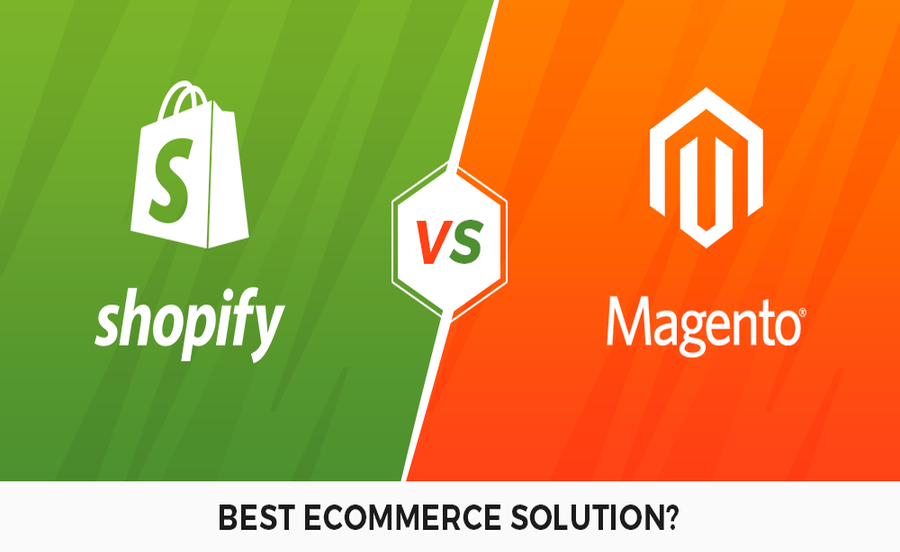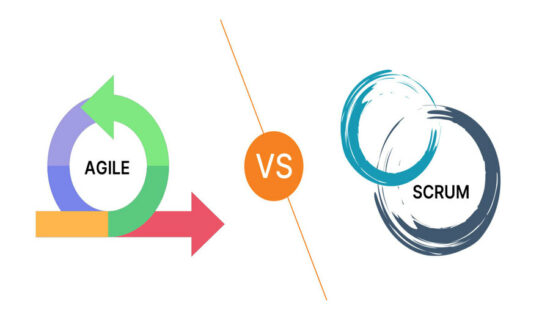
In the ever-evolving landscape of e-commerce, choosing the right platform is crucial for the success of your online business. Magento and Shopify are two leading contenders in this arena, each offering unique features and capabilities tailored to different business needs. In this comprehensive guide for 2024, we’ll delve into the key differences between Magento and Shopify to help you make an informed decision for your e-commerce venture.
Understanding Magento and Shopify:
Magento:
Magento stands out as a robust and flexible e-commerce platform, renowned for its open-source nature and extensive customization options. Originally launched in 2008, Magento has evolved over the years to cater to businesses of all sizes, from small startups to large enterprises. With its rich feature set and scalability, Magento is particularly well-suited for businesses with complex product catalogs and advanced customization requirements.
Shopify:
On the other hand, Shopify offers a user-friendly and intuitive platform designed to simplify the e-commerce experience for merchants. Launched in 2006, Shopify has grown into one of the most popular e-commerce solutions globally, powering millions of online stores. Its ease of use, built-in features, and comprehensive support make it an attractive option for entrepreneurs and small to medium-sized businesses looking to establish an online presence quickly and efficiently.
Key Differences Between Magento and Shopify:
Customization:
One of the primary distinctions between Magento and Shopify lies in their customization capabilities. Magento provides unparalleled flexibility, allowing developers to tailor every aspect of the online store to meet specific requirements. With access to the platform’s open-source codebase, businesses can create highly customized storefronts and integrate advanced functionalities seamlessly.
In contrast, while Shopify offers some degree of customization through themes and apps, it may not match the level of flexibility provided by Magento. However, Shopify’s simplicity and ease of use make it a preferred choice for merchants seeking a hassle-free setup without extensive technical expertise.
Scalability:
Scalability is another crucial factor to consider when choosing an e-commerce platform. Magento excels in this aspect, offering robust scalability options that enable businesses to grow and expand their operations seamlessly. Whether you’re a small startup or a large enterprise, Magento can accommodate your evolving needs with ease.
Shopify, while capable of handling moderate growth, may face limitations in scalability compared to Magento. However, Shopify’s managed hosting and built-in features make it a reliable option for businesses looking to start small and gradually scale their operations over time.
Pricing:
The pricing structure of Magento and Shopify differs significantly, impacting the overall cost of ownership for businesses. Magento’s open-source edition is free to use, making it an attractive option for budget-conscious entrepreneurs. However, businesses opting for Magento Commerce Cloud, the platform’s hosted solution, will incur substantial costs, starting at $40,000 per year.
In contrast, Shopify offers a range of pricing plans to suit various budgetary constraints, including a basic plan for startups and a more advanced plan for established businesses. While Shopify’s monthly subscription fees may seem more affordable initially, additional costs may accrue with the use of third-party apps and services.
Choosing the Right Platform for Your Business:
When deciding between Magento and Shopify for your e-commerce venture, it’s essential to evaluate your specific business requirements and objectives. Consider factors such as the complexity of your product catalog, customization needs, budgetary constraints, and long-term growth plans.
If you prioritize flexibility, extensive customization options, and scalability, Magento may be the ideal choice for your business. However, be prepared to invest in development resources and ongoing maintenance to harness the full potential of the platform.
On the other hand, if simplicity, ease of use, and affordability are your primary concerns, Shopify offers a compelling solution for launching and managing your online store with minimal hassle. While it may have limitations in terms of customization, Shopify’s robust features and
comprehensive support make it a reliable option for businesses of all sizes.
Conclusion
In the dynamic world of e-commerce, selecting the right platform is crucial for achieving success and staying competitive. Magento and Shopify both offer distinct advantages and capabilities, catering to diverse business needs and preferences. By understanding the key differences between these platforms and aligning them with your specific requirements, and with ChetsApp, you can make an informed decision that sets your e-commerce venture up for long-term growth and prosperity in 2024 and beyond.

